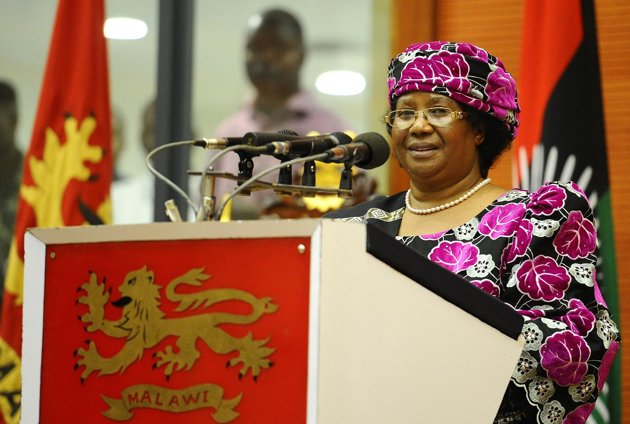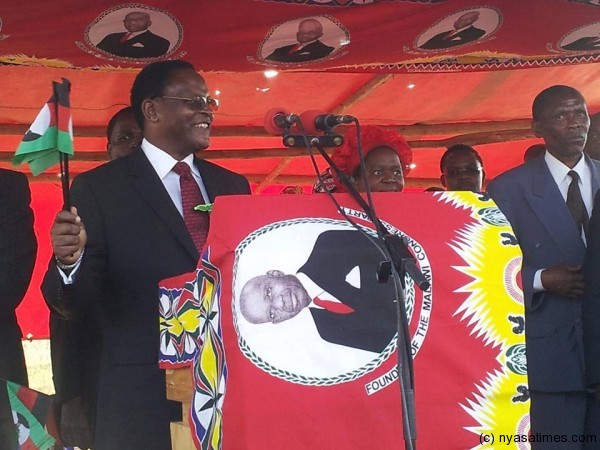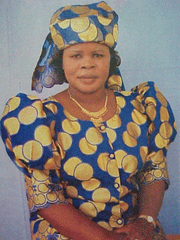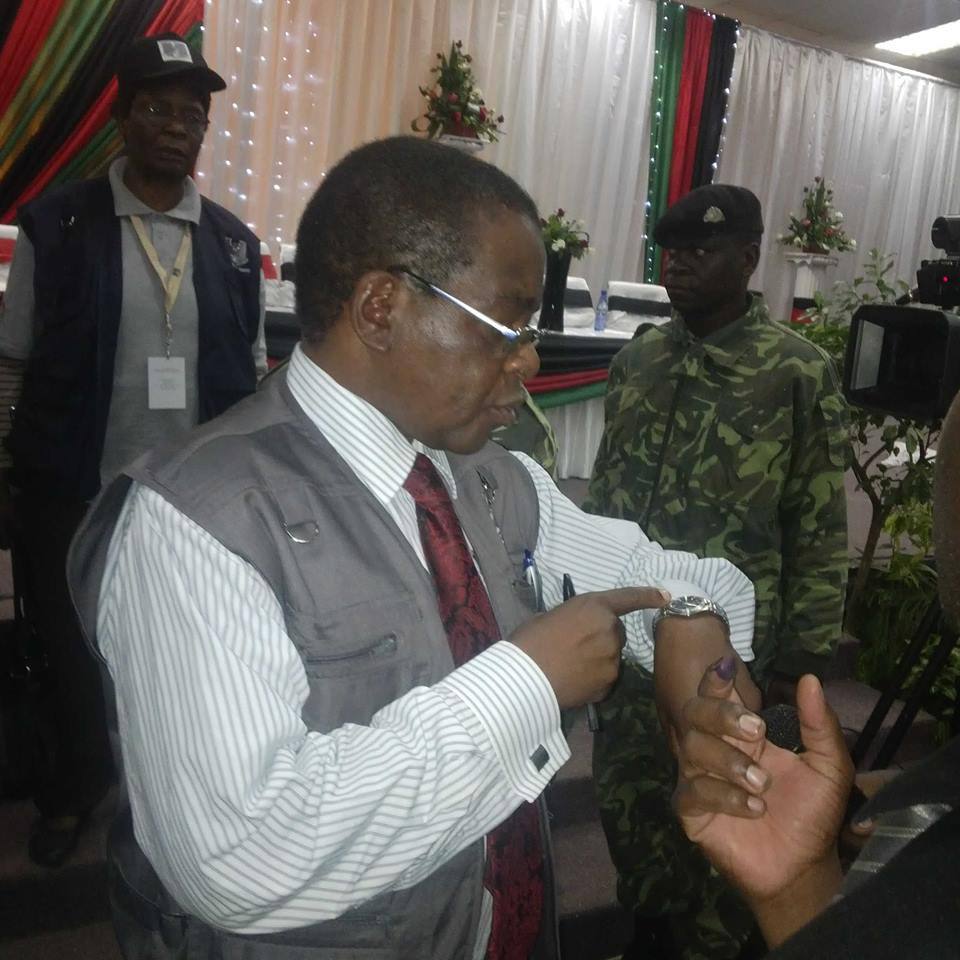It’s only a few months before Malawi’s presidential elections, and the race is close – too close for comfort for Joyce Banda, who is desperate to prove her presidency was not just a fortunate coincidence. The pressure is on, and with it some unforgiving media scrutiny. Banda, however, is not doing herself any favours. She’s already broken rule number one for free and fair elections: don’t, whatever happens, get the Zimbabwe Electoral Commission involved.
In 2012, Joyce Banda got lucky. She was never supposed to be president of Malawi. She wasn’t even supposed to be vice-president, at least according to then-President Bingu wa Mutharika, who tried to remove her from the position on several occasions (he failed because to do so would have been unconstitutional). But then Mutharika died, suddenly, and Banda – having played her cards right, and ensured the military stayed on her side – was thrust into the top job, as per the legal succession.
This was an earthquake in Malawian politics. Banda was no longer even a member of the ruling party, and parliamentarians suddenly rushed to join her new People’s party. Many of the old guard, secure under Mutharika’s increasingly authoritarian rule, found they had backed the wrong horse. Banda, having been frozen into insignificance by Mutharika, was suddenly in charge. It was an astonishing change in fortunes: within the space of a day or two, she went from pariah to president.
Banda knows, however, that her two years in office were a gift (it was God, she says, who put her in charge of the “transit lounge”). She is not the elected president, which means her rule lacks any kind of mandate from the masses, the legitimacy conferred by the people – a legitimacy which she craves. The question Malawians are asking themselves is: how badly does she crave another term in office? And how far is she prepared to go to secure it?
There have been two recent incidents that have given journalists and observers pause – and raised concerns, yet again, the President Banda is not quite the saint she was made out to be in her first few months in office, when she earned local and international goodwill by reversing the worst excesses of Mutharika’s regime.
The first relates to the mysterious arrival, in the early hours of March 15, of a Nigerian air force jet at Chileka International Airport in Blantye – this despite the airport being closed to general traffic at the time, allegedly for repairs. According to media reports, State House officials were on hand to welcome the plane, and some of its cargo made its way into a vehicle which ended up in Sanjika Palace, the president’s official residence. Rafiq Hajat, a local activist and head of the Institute for Policy Interaction, believes that on the plane were Nigerian experts in rigging elections, and the materials they need to do so. In the absence of a government correction, this is the only version of events doing the rounds in Malawi.
“The fraud allegations to do with the Nigerian plane are of serious gravity, considering the nature of the plane’s arrival and the cargo it was allegedly carrying (already marked ballots),” said Stephen Dakalira, head of news for Capital Radio Malawi. “It came just days after the airport had been closed (allegedly to accommodate repair works on the run-way). Malawi will be going to the polls shortly on May 20 hence the development has aroused suspicion amongst many people.”
The second is a matter of public record. Desperate for gas lamps, apparently, the Malawian Electoral Commission (MEC) has borrowed 10,500 of them, along with other equipment, from Zimbabwe’s Electoral Commission (ZEC). Nothing wrong with this, of course: a gas lamp is not going to have much impact on the election one way or the other. If anything, it will keep the darkness away from polling stations, making everything just that little bit more transparent. Still, not everyone’s happy: observers have criticised any kind of working relationship between the MEC and the ZEC, noting that Zimbabwe is hardly a role model for free and fair elections.
“The anomalies in the voters roll, the reliance on the Zimbabwe Electoral Commission and rumours about illegal printing of additional ballots by her People’s Party has reinforced fear about rigging. This is diluting any hopes of a free, fair and accessible process,” said Billy Mayaya, a prominent civil society activist.
Malawi’s elections, scheduled for 20 May, look likely to be a close-run thing, with four candidates in with a decent chance: Banda, of course; Peter Mutharika, the late Bingu’s brother; Atupele Muluzi, son of former president Bakili Muluzi; and prominent churchman Lazarus Chakwera. This, perhaps, is why these rigging allegations are gaining such currency: it is by no means a sure thing that Banda will be re-elected.
But it should have been. When she took over from Mutharika, Banda was a superstar who could do no wrong. Since then, however, her star has fallen – hastened down to earth by a multi-million dollar corruption scandal known as Cashgate, in which her office is directly implicated. It is generally acknowledged that Joyce Banda started well but she slowly lost touch by veering away from the many promises she made about public sector reform as well as economic reform. The current scandal related to the plunder of public resources has dented her image immensely. Had she stayed on course with her early promises she would really made a real difference.





No comments! Be the first commenter?